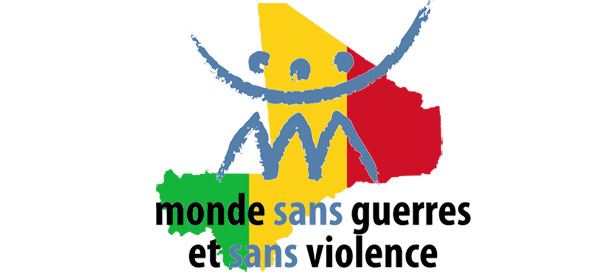Exactly one year ago today, the Republic of Mali saw its sovereignty attacked by armed bandits of all kinds. In fact, the Azawad National Liberation Movement (MNLA), a secessionist movement of the northern regions, in connection with other armed groups, Ançar Dine, Aqmi, MUJAO, and Boko Haram, have invaded three regions in the north of Mali (Timbuktu, Gao and Kidal) in order to install sharia law in Mali.
Confronted with the atrocities of these armed groups, more than 208,000 people are refugees in neighbouring countries and more than 134,000 have been internally displaced.
Despite the numerous appeals launched by the Malian authorities, Malian civil society organisations, including the national team of World without Wars, political parties, and the international community, to the armed jihadist and secessionist groups to cease all abuses, the populations of the north have been powerless against rapes, amputations of legs and arms, whipping, restriction of freedom by the imposition of obligatory covering of hair, and banning of smoking, drinking tea in the street, leisure and recreational activities.
Furthermore, cultural heritage has been destroyed in the three regions with the destruction of mausoleums and monuments, numerous children have been taken as soldiers by jihadist and secessionist armed groups.
In the face of the advance of armed jihadist groups towards the south, the Republic of Mali has seen its existence threatened. So, wasn’t prompt action needed to stop the jihadists? This prompts World without Wars, Mali, to ask itself questions in order to understand what would be the situation in Mali without the intervention of France which has, without doubt, stopped the progress of jihadists towards the capital.
While deploring that the security situation in the north of Mali has led to French intervention and the deployment of African troops on Malian soil, World without Wars and Violence, Mali considers that there was an urgent and vital situation for Mali. Without French intervention wouldn’t Mali be under the control of this so-called “Islamist” mafia? As Silo said, “one thing is only provisionally better than another, ultimately there is no better or worse.”
However, World without Wars and Violence, Mali lays the responsibility for this present security situation in the north of Mali on France and NATO as a result of the war in Libya, from where certain forces returned to the north of Mali without problems despite the logistical means available to France and NATO who could have stopped them as they are now doing in Mali.
World without Wars and Violence, Mali, is concerned that the presence of foreign forces does not, in the future, turn into an occupation force of Northern Mali with one hand on the mineral resources as has been the case in other countries.
Bearing in mind the above, World without Wars and Violence, Mali, recommends to Malian authorities and the international community:
– That military intervention is limited in time and that it has a single objective of ridding Mali of terrorist and Mafia groups;
– Immediate disarmament of armed groups of the Azawad National Liberation Movement and prevention of their involvement in the fight against banditry, drug trafficking and terrorism in Sahel Saharan Africa. This is based on the ambiguous position of the rebel Tuareg Movement that has been connected to jihadists since the start of the occupation of the northern regions in January 2012;
– Protect civilians from abuses and all other collateral damage during this intervention;
– That France, African troops and their allies are no substitute for the Malian people and their armed security forces in the reclaiming of Mali’s territorial integrity;
– That the Malian army is reformed and given the capability to allow it to prevent and fight against aggression by terrorists and other armed groups;
– Open national consultations after the Malian military intervention in order to discuss the political organisation of Mali and to set up credible democratic institutions that could act against sub-development, corruption, favouritism and mismanagement.
Gaoussou BATHILY
National Coordination, World without Wars and Violence, Mali










